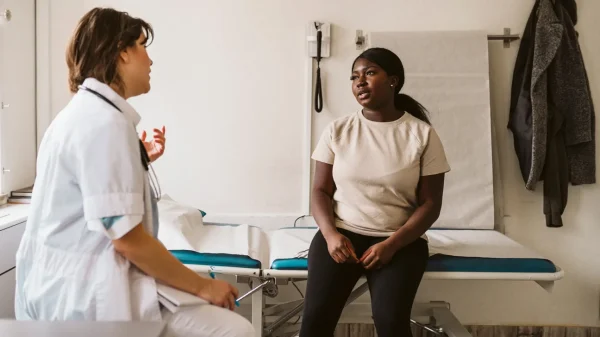ENTERTAINMENT
Racial Misconceptions in Healthcare Are Killing Black Women

As many of you are probably aware, we as Black women have a serious problem in this country regarding our healthcare. Simply put, we’re being shorted by a system and medical establishment that either doesn’t understand us or is hogtied by racism. Either way, everyone who cares for us has to do better.
Historical data confirms that medical racism is tied to slavery. Oddly enough, the only time there was a genuine focus on Black women and their bodies was just before slavery ended. The white establishment continued to need healthy Black women to produce healthy babies within the country to keep the engine of slavery chugging forward, knowing that importing “chattel” would soon be illegal.
“All of a sudden you have a consorted effort by the state and by slave owners and physicians who are now concerned with how to increase the natural rate of birth for black women. […] Natural increase was the thing that could keep the engine of slavery alive and running in the United States.” Jessica Marie Johnson, assistant professor of the Department of Medicine at Johns Hopkins, made this statement at a forum on the complex history of slavery and its impact on health equity across the United States.
But when the country moved away from slavery, white doctors shifted their ideology from care to skepticism of the complaints by Black women — which continues to this day. Even Serena Williams had to beg her physicians to listen to her about her body. If she hadn’t demanded doctors listen, the outcome after the birth of her daughter could have been far different than it turned out.
We’re at a crossroads. And there are many examples in history of how we’ve arrived at this pivotal moment in Black women’s healthcare. The medical establishment doesn’t understand us, and many of us don’t trust them.
A historical perspective
In the 1800s, James Marion Sims, later lauded as the “father of gynecology,” conducted gynecological experiments on enslaved Black women without anesthesia and without their consent.
For 4 years, Sims operated on countless enslaved women under the racist pretense that Black women didn’t feel pain the same way as whites. As bizarre as that concept may seem, it persists in the medical community today.
According to a 2016 study conducted at the University of Virginia, “a substantial number of white laypeople and medical students and residents hold false beliefs about biological differences between Black and white [people] and demonstrates that these beliefs predict racial bias in pain perception and treatment recommendation accuracy.”
Of course, one of the worst examples of healthcare disparities in the United States was the notorious USPHS Syphilis Study at TuskegeeTrusted Source.
In 1932, U.S. government researchers recruited 600 Black men with syphilis — a bacterial infection — from lower-income communities for a study on the natural history of the condition. The bacteria that cause the infection is transmitted through sexual contact.
While 600 men were involved in the study, 399 men were never treated despite treatments being available shortly after the study started. These men were prevented from getting treatment so that those conducting the study could evaluate the course of syphilis in their bodies.
The purpose of the study was never revealed to the men or their families. They were simply observed until they died.
In 1951, Henrietta Lacks, a 30-year-old African American woman, was diagnosed with an aggressive form of cervical cancer. She died from the disease, but her cancer cells live on. Her cells were cultured at Johns Hopkins Medical Center on a mass scale, becoming known as the “HeLa” cell line.
White doctors at Johns Hopkins in the 1950s preyed on Black women with cervical cancer, cutting away tissue samples from their patients’ cervixes without their patients’ knowledge or consent, says a recent lawsuit filed by the estate of Henrietta Lack.
In 20th-century history, global medicine has been transformed by computers managing healthcare — except it’s been discovered that medical software can also be racist.
According to research from 2019, an algorithm used in hospitals helping to manage healthcare for over 200 million people in the United States systematically discriminated against Black people.
And based on the research, people who self-identified as Black were given lower risk scores and fewer referrals for procedures than white patients despite Black patients being sicker.
The authors estimated that this racial bias reduced the number of Black patients identified for extra care by more than half because the algorithm used health costs as a proxy for health needs. Since less money is spent on Black patients who have the same level of need, the algorithm falsely concluded that Black patients are healthier than equally sick white patients.
[via]










